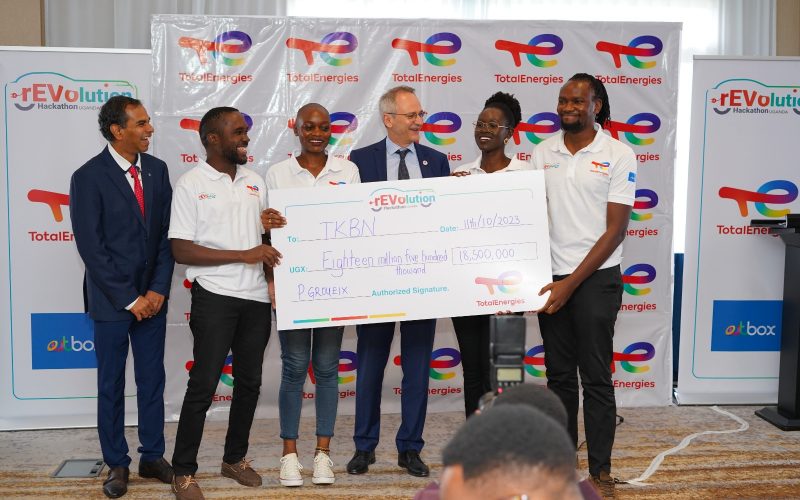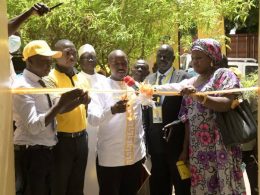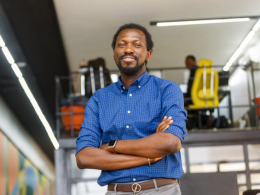By Mark Kawalya
An innovative solution by team TBKN that utilizes artificial intelligence to identify optimal locations for electric vehicle (EV) charging points has been declared the winner of the prestigious TotalEnergies Uganda rEVolution Hackathon (#TErEVolutionUG). The TBKN team’s innovation was declared the winner of the competition at an awards ceremony held in Kampala, marking the end of a three-month hackathon challenge that is the brainchild of TotalEnergies.
The goal of the challenge was to give young Ugandans a chance to develop ideas that would help determine the ideal locations for EV charging stations in Kampala. A monetary prize of Shs 18.5 million was given to TBKN, while Shs 11,100,000 went to ISBAT University, the first runner-up. Shalom and Data Knight shared third place and Shs 3.7 million apiece.
Philippe Groueix, general manager of TotalEnergies EP Uganda and country chair of TotalEnergies in Uganda, said “Today’s carbon neutrality challenge calls for a collaborative focus on innovation. Our company is actively involved in the e-mobility think tank and supports innovation in line with e-mobility.”
In accordance with their commitment to youth inclusion, the company organized the e-mobility rEVolution Hackathon challenge to give young people a forum to submit innovative concepts that can help e-mobility in Kampala. Over 400 Ugandans between the ages of 18 and 45 submitted applications for the challenge, which was run by Outbox Uganda on behalf of TotalEnergies Uganda. This ran from July to September 2023.
“This hackathon demonstrated that youth can play a significant role in tackling societal issues in collaboration with the commercial sector.” Richard Zulu, Team Principal at Outbox Uganda, said, “We remain steadfast in our commitment to ensure that the selected solutions can be considered for operationalization by TotalEnergies in Uganda and other mobility actors in Uganda.”
Following a preliminary assessment of all submissions, sixteen teams with four members each were selected for the shortlist. These groups were entrusted with coming up with creative solutions using data gathered from Kampala’s traffic, energy, and road networks. The teams received mentorship and coaching to refine their ideas before presenting them to a panel of judges. The proposals were assessed according to various criteria including innovativeness of ideas, team composition, presentation, and business fit.








